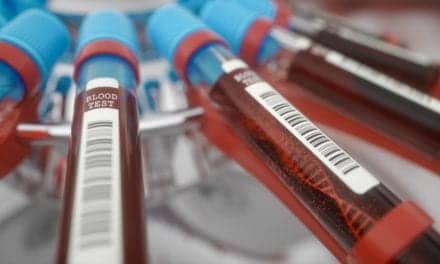Summary: An international panel of experts has developed guidelines to standardize microbiota testing, addressing current knowledge gaps and promoting evidence-based clinical use for disease diagnosis.
Takeaways:
- Guidelines for Ethical Testing: The consensus document establishes ethical, organizational, and technical standards for microbiota test development, commercial use, and clinical application.
- Need for Evidence-Based Practice: Experts emphasize that microbiota analysis is not yet ready for widespread clinical use, requiring further studies to validate personalized approaches and educate healthcare providers.
- Integration into Personalized Medicine: Standardized microbiota testing can enhance diagnosis and treatment of microbiota-related diseases and support innovative medical education for future physicians.
The gut microbiota could become a routine tool for the early diagnosis of many diseases and to guide treatment, but at present there is a lack of solid scientific evidence to support these claims. Yet, according to researchers, there are more and more offers of commercial kits for do-it-yourself testing, at the moment totally lacking in meaning and scientific solidity,
To put a stop to this drift, an international panel of experts, coordinated by Gianluca Ianiro, MD, PhD, has drawn up “instructions for use” for best practice in microbiota testing and recommendations for its indications, methods of analysis, presentation of results and potential clinical applications. In a consensus paper published in Lancet Gastroenterology & Hepatology, the current knowledge gaps and future directions of research in this field are also recalled.
The aim of this paper is to provide a regulatory framework for the provision of microbiota tests and to reduce the use of inappropriate tests, in order to pave the way for an evidence-based development of human microbiota diagnostics in medicine.
Significance of Gut Microbiota for Disease Diagnostics
The gut microbiota is a key mediator of a number of essential human functions: from metabolism to immune regulation to drug response. Imbalances in its composition (‘dysbiosis’) are also associated with various intestinal and extra-intestinal diseases and can influence the response to treatments (including cancer).
Although this field is still pioneering, there are already spin-offs in clinical practice. Microbiota manipulation, by means of faecal microbiota transplantation, for instance, is currently the routine treatment for relapses of Clostridioides difficile infection. Several lines of research are evaluating the gut microbiota as a possible tool for diagnosis, prognosis, risk stratification, and response to treatment. In short, interest and enthusiasm abound, but valid scientific evidence is currently lacking, and future doctors are not taught in universities how to interpret a microbiota test, nor how to manipulate it for therapeutic purposes. But the market runs faster than science, as has already happened in the past with home genetic tests.
In order to give a rule to this new gold rush and define standards of quality and accuracy, a panel of international experts, led by Professors Antonio Gasbarrini and Giovanni Cammarota and Ianiro of Fondazione Policlinico Gemelli (FPG)/Università Cattolica del Sacro Cuore (UCSC), among the absolute pioneers of microbiota research, drew up a consensus document, published in Lancet Gastroenterology & Hepatology.
“In recent years, the intestinal microbiota has taken on a key role as a diagnostic, prognostic, and therapeutic tool,” says Serena Porcari, MD, of the Unit of Gastroenterology Fondazione Policlinico Gemelli and first author of the study. “From this point of view, the first step, for a targeted modulation of the microbiota itself, is to obtain a standardisation of its analysis, regulated according to the definition of minimum criteria for performing the test’.
Guidelines for Ethical Microbiota Testing
This initiative is aimed at establishing ethical, organizational and technical rules for the development, commercial use, and clinical implementation of microbiota tests. The document is the result of a consensus of a multidisciplinary consortium of experts in this field, coordinated by Professor Gianluca Ianiro, including clinicians, bioinformaticians, microbial ecologists and clinical microbiologists.
The take-home message of the consensus is that the time is not yet ripe to use microbiota analysis widely (outside highly specialized centers) in clinical practice, particularly for the early diagnosis of many diseases or as a guide to treatment.
“Further intervention studies are needed to evaluate the effectiveness of personalized (and not one-size-fits-all) modulation based on the results of these tests,” says Giovanni Cammarota, professor of Gastroenterology, UCSC, and director of the FPG Gastroenterology Unit.
It is also necessary to educate the medical community to implement these tests in clinical practice.
“This document marks a decisive step towards a standardisation that has become indispensable, making the microbiota an increasingly integrated element in personalised medicine,” says Professor Antonio Gasbarrini, dean of UCSC and director of the Digestive Disease Center and of the Internal Medicine and Gastroenterology Unit. “In the clinical context, such guidelines will be essential to translate research advances into concrete applications, improving the management of many microbiota-related gastroenterological and systemic diseases. As Dean of the Faculty of Medicine at the Catholic University, I also believe that the proposed standardisation represents a fundamental contribution not only to clinical practice and research, but also to innovative teaching in medical degree courses and post-graduate courses. In fact, the recommendations put forward by the experts offer a solid and standardised scientific reference that can be immediately integrated into training programmes to prepare the doctors of the future to use microbiota testing in a critical and informed manner.”





